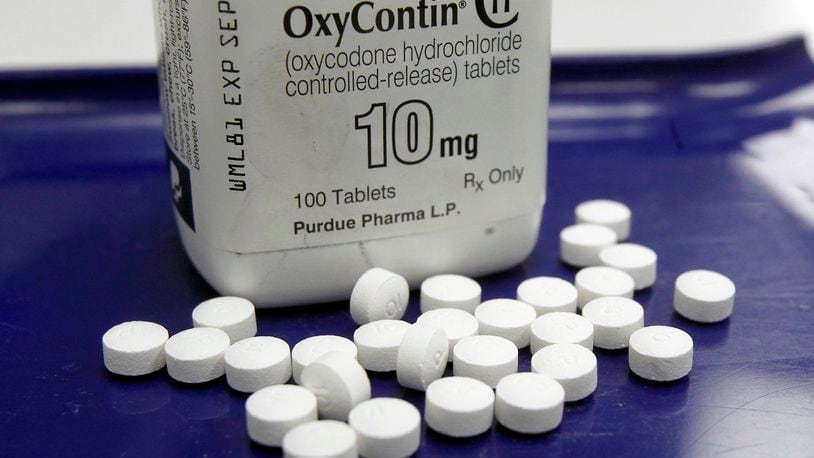So what is Miami-Luken and why is its distribution practices under scrutiny?
RELATED: Kettering Health withdraws Middletown rezoning requests
WHOLESALER
The 55-year-old company, headquartered at 265 S. Pioneer Blvd., is a wholesaler that distributes to pharmacies and also operates a chain of its own retail pharmacies. Besides prescription drugs, it also distributes pharmacy goods like medical equipment and candy.
The company started out as Miami Valley Wholesale Drug Co. and grew with the help of a series of acquisitions. It completed its headquarters in Springboro in 1991 and consolidated to the city.
As a wholesaler, the company is a middleman between pharmacy drug manufacturers and pharmacists.
FLAGGING
The DEA, which is trying to yank Miami-Luken's license to distribute, contends the company should have flagged the suspiciously large orders of pills by pharmacies. Wholesalers have noted it was corrupt doctors and pill mills that made the flood of opioids possible.
LOCAL: Amazon reported to sign new lease for Cincinnati-area building
Miami-Luken and other wholesalers are being investigated for the high quantities of prescriptions that it shipped to West Virginia.
FLOODING
The Charleston Gazette-Mail, which has been investigating the flood of powerful prescription painkillers into the state, reported in six years, drug wholesalers brought 780 million hydrocodone and oxycodone pills into the state, which divides out to 433 pain pills for every adult and children.
Miami-Luken is among those wholesalers and had shipped 20 million doses of oxycodone and hydrocodone to pharmacies in West Virginia between 2007 and 2012 and about 11 million wound up in Mingo County, with a population of 25,000.
The Springboro distributor also benefited from an industry campaign to get Congress to weaken drug distribution enforcement, according to a new investigation by Washington Post and 60 Minutes.
The investigation reported the pharmaceutical drug industry lobbied Congress to weaken the Drug Enforcement Administration’s ability to freeze suspicious narcotic shipments.
RELATED: Medicare open enrollment starts
DEA INVESTIGATION
Jim Geldhof, retired DEA program manager in Detroit, said in the report that he been investigating Miami-Luken, which had shipped a suspicious amount of prescriptions to West Virginia.
Geldhof said the DEA’s legal office at headquarters ignored him for two years when he wanted to halt Miami-Luken’s operations, though before Geldhof left in 2015, the DEA accused the company of multiple violations of the law for allegedly failing to report orders for tens of millions of pain pills from pharmacies, most of them in West Virginia. That case is pending.
Of the millions of pills sent to Mingo County, many went to one pharmacy in Williamson, with a population of 2,924. The report states in one month, Miami-Luken shipped 258,000 hydrocodone pills to the pharmacy, more than 10 times the typical amount for a West Virginia pharmacy.
LAWSUITS
The mayor of Williamson filed a lawsuit against Miami-Luken and other drug distributors, accusing them of flooding the city with pain pills and permitting them to saturate the black market.
RELATED: Hospice of Dayton and Premier Health partner on new $10M center
“Like sharks circling their prey, multi-billion dollar companies descended upon Appalachia for the sole purpose of profiting off of the prescription drug-fueled feeding frenzy,” the lawsuit states.
Miami-Luken is additionally facing a Congressional investigation. The U.S. House Committee on Energy and Commerce asked Miami-Luken to turn over documents related to its shipments and the company's ousted former chief executive, Anthony Rattini.
About the Author
